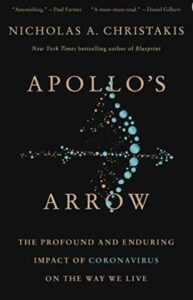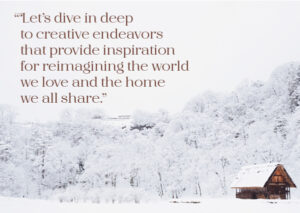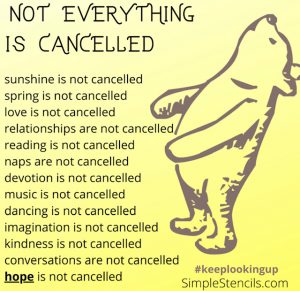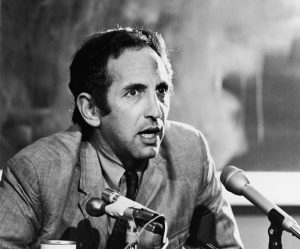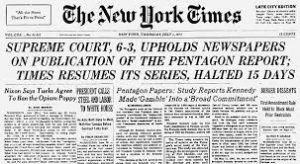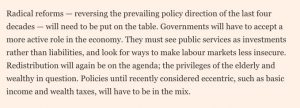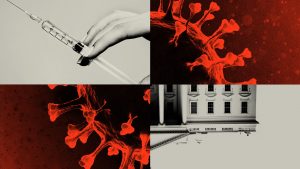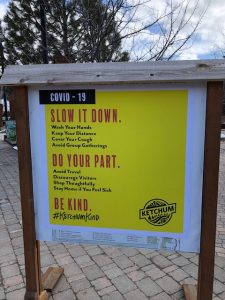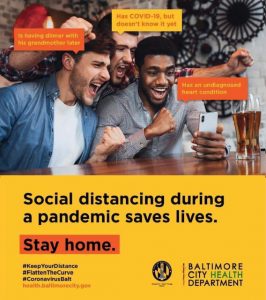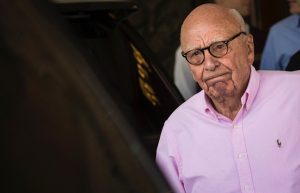Pandemic
🥀Valentine’s Day
February 14, 2022A statue of St.. Julian of Norwich (c.1342 – c. 1416) in the Norwich Cathedral, England.
She that made all things for love.
Revelations of Divine Love, written in the 14th century by an anchoress, Julian of Norwich, is remembered today as the first work in the English language written by a woman. She lived the entirely of her life during a pandemic, the bubonic plague, or Black Death.
S
O
P
H
I
A
Wisdom is the mother of all things.
Compassion is rooted in the word, womb. Julian was the first to address Jesus as mother.
Culture and spirituality author Matthew Fox:
A Pandemic is too important to waste.
This pandemic is here to wake jus up. To What? To a “new normal.” One that honors the sacredness of the earth and of all its life forms. One that honors the divine feminine alongside a sacred masculine. One that honors the human body and its basic needs, a long with those of the earth’s body, and on that basis give birth to a new body politic. One that does not put billionaires and the structures that create them on pedestals. And one that does not elect narcissistic politicians who incarnate the very meaning of fatalistic self-hatred by watching hundreds of thousands die with a shrug of the shoulder. Remember? “It is what is it.” 900,000+ have die. (With compassion and leadership, how many more would still be alive?-dayle)
[…]
Might I suggest this: maybe Julian of Norwich, and the rich tradition of creation spirituality that she carries in her bones, heart, and mind, from Jesus to Benedict, Hildegard, Francis, Aquinas, Mechtild, and Eckhart…maybe she is the vaccine that is truly needed today.
Virtual love
2021’s end.
December 18, 2021♡
Rilke:
I have seen for some time
how everything changes.
There is that which arises and acts,
kills and causes grief.
[…]
Now it is empty where I stand
and look down the avenue.
Almost as far as the farthest ocean
I can see the heavy
forbidding sky.
Thomas Merton:
When God allows us to fall back into our own confusion of desires and judgments and temptations, we carry a scar over the place where that joy exulted for a moment in our hearts.
The scar burn us.
The sore would ache within us, and we remember that we have allen back into what we are no and are not yet allowed to remain where god would have us below.
We long for the place he had destined for us, and weep with desire for the time when his pure poverty will catch us and hold us in its liberty and never let us go, when we will never fall back from the Paradise of the simple and the little children into the forum of prudence, where the wise of this world go up and own in sorrow and set their traps for a happiness that cannot exit.
Krista Tippet.
On Being.
It remains such a hard, strange time in the life of the world. I cleave as best I can to my “muscular hope,” yet this past year has not lived up to the vision I had for the “beyond” of 2020. It was, I suppose, a dream of moving past the pandemic. Not a return to some old or new undesired “normal,” but at least a page turned, a new chapter opened. We are still, and again, in a liminal time and space — an in-between time of rupture and searching and unmourned losses and so many callings yet to heed, so much change to absorb and propel
Even as I am brokenhearted and uncertain at this juncture in the life of the world, I am ever grateful for the accompaniment you offer me in the mysterious, miraculous ether…
And I am, yes, looking forward to the beyond of this year. I will meet you here again on the other side. I wish you a restorative sacred holiday season, Christmastime, and New Year — and if that is not possible, as much kindness and gentleness toward yourself as you can possibly muster.

Be safe, friends. Mourn. Embrace. Love. Maybe even allow a little bit of hope. ~dayle
Hope is holding in creative tension everything that is with what could and should be, and every day taking some action to narrow the distance between the two. -Parker Palmer
Managing the Shi(f)t
July 30, 2021The main theme for August is “Managing the Shi(f)t”.
The first part of the month requires great flexibility, acceptance, compassion, and resilience to deal with unexpected and sudden changes whether in yourself or in others. It may look grim at the beginning but we are moving forward into calmer waters that will provide more stability, inspiration, rational thought and clarity as we anchor ourselves into a brighter landscape.
Old emotional and habitual patterns are still bubbling to the surface for forgiveness and expulsion. We get to see where we have been wasting our energy on worry, regret and blame. Old habits of judgment, feeling powerless, victimized, and limited in what we can create have eroded our motivation and bred despair, anger, resistance and negative attitudes towards life. If you get stuck there, and are unwilling to let the past go and accept where the tide is moving, you will be miserable.
On the other hand, if you are willing to open to more trust in the positive and optimistic view of the big picture, you can completely turn anything negative and limited in your life around. The clearing of old trauma in any and many ways is a very useful practice this month. (There is a good exercise on the monthly support audio to help with the understanding and clearing of trauma or “susto”.)
This will require an open heart and the discipline of trust even though you may not have instant feedback from your prayers and intentions. There may be a lag time that tests you. You may not see or experience results that you are on the right track and you may need to go deep into your own intuition for confidence and confirmation. And, if you continue to come across obstacles and challenges along the way, look to what is not yet cleared in your field or where you are still holding on to something in your past, rather than how the universe may not be supporting you at this time.
Remember that in order to bring your vibration up and move to that next level, you need to make space. Creating space for the abundance available later in the month demands paying attention to your habitual reactions, habits and judgments so you can clear and change them to a better alignment.
The most important thing is to stay out of blame, especially when you are accommodating a change that you did not initiate. Acceptance and neutrality go a long way to ease the discomfort of this experience.
We are definitely in a transition time and a huge shift in consciousness and vibration.
Curiosity, optimism, creativity and humor should be a major part of the management team you build to navigate this month and the months to come. Take responsibility for your own shi(f)t, and stay in your own lane with regards to where others are in their own navigation. Once we get through the potentially cranky new moon on the 8th, we have our work cut out for us. If we do it well, there are many gifts awaiting us as we move into the last part of the month.
What is the “work”?
Courage to tell the truth. Courage to let go. Courage to forgive. Determination to trust. Discipline to stay out of blame. Compassion for yourself and others. Acceptance and cooperation regarding change not initiated by you. Keeping your vibration high no matter what through beauty, inspiration and strong spiritual practices. Staying in your own lane and out of other people’s drama and negativity. Trusting your intuition, your inner guidance, and having the courage to go for what is right for YOU. Taking full responsibility for your own shi(f)t.
How the rest of the month shows up:
‘This is how it unfolds.’
May 19, 2021Courtney Martin
“It’s easy, if you are vaccinated, and in good health and spirits, to feel like the whole world is enjoying a moment of reopening, reconnection, restoration. They aren’t. Even folks within our own country—those suffering from long covid, those who haven’t had access to vaccines, or don’t trust them for various reasons, are still far more precarious.
Despite the fact that many of my vaccinated friends and I are tentatively stepping into one another’s homes and reveling in the simple joy of sitting at one another’s kitchen tables, despite the fact that I took my first hike without a mask on in over a year, despite the fact that my kids’ school says it will be fully open and in person in the fall–the pandemic is not over.
In the wider world, it is very much raging on.
I was reminded of this as I was standing around a playground on Sunday and got a WhatsApp message from a friend, someone with relatives in India. She wrote, in part:
My elderly aunt is battling covid. She was taking care of a dying husband and a disabled son. Now my uncle is dead and the government came and took his body away. My other cousin went to the crematorium alone. No last rites, expect my uncle who lives on the block, broke the rules and snuck outside to just watch the body being taken away. There is no point to this story beyond my grief and my rage and the unshakable pain that this is how it unfolds.
My grief and my rage and the unshakable pain that this is how it unfolds.
We have to remember that our joy is profoundly relative and propped up by a thousand unearned privileges. Relationships are a universal foundation—a richness that survives in every corner of the globe no matter the structural constraints. My friend’s uncle snuck outside, despite the danger. This is what we humans do.
But our ability to revel in and honor our friends and family are often influenced by economics and nationality and gender and race and so much else. In other words, we are profoundly connected by our need for relationships and profoundly severed by our differential capacity to nurture those relationships in this moment. To be healthy. To be healed. To be safe.
We are in a moment of transitions—all the way from the most intimate to the most global. Let us treasure our joy, our small, safe re-openings and reconnections, all the while holding the truth that so many are still in acute danger and pain.”
https://courtney.substack.com/p/de-centering-wellness
If you’re absolutely positively NOT gong to vaccinate, then mask up.
Living with COVID as endemic.
April 28, 2021COVID is here to stay. With so many hesitant, and anti-vaxxers, it is now believed we will never reach herd immunity in this country.
What will the psychology and existential remains be as we settle into a new existence? -dayle
Dr. David Pate, Idaho COVID task force:
“I am very pleased with many of the efforts being made to address vaccine hesitancy, but we lost our chance a year ago to rid ourselves of this virus and unfortunately, I suspect we are unlikely to reach herd immunity given more and more evidence that prior infection is not going to be as protective as we had hoped, the unwillingness of people to follow guidance that would allow us to control disease transmission and therefore the evolution of variants, and the currently inadequate numbers of people willing to be vaccinated. Most likely, we just have to prepare for SARS-CoV-2 to be endemic.”
[Christakis is a physician and sociologist who explores the ancient origins and modern implications of human nature. He directs the Human Nature Lab at Yale University, where he is the Sterling Professor of Social and Natural Science in the department of sociology, medicine, ecology and evolutionary biology, statistics and date science and biomedical engineering.’]
‘…and frequent funeral piles of the dead were continually burning.’ -Homer, The Iliad
‘Humanity has but three great enemies: fever, famine, and war; of these by far the greatest, by far the most terrible, fever.’ Sir William Osler [1896]
New York Times
“The story changes daily and so do the prognostications about where this pandemic is going, how it will end (insofar as it ever does end), what toll it will take and whether it will serve as a critical inflection point, or not, for how we humans live on this planet. Will it deliver a deeply absorbed lesson, not just on disease preparedness but also on climate change and vanishing biological diversity, the three greatest problems we are facing and causing? Or will it drain away and be forgotten, as the 1918 influenza pandemic largely drained away, its lessons ignored and its grim particulars seemingly blocked from public memory for decades? Along with the prognostications we’re also getting postgnostications (it’s not my neologism), efforts to understand the past by predicting what happened: Where did this virus come from? A wild animal? Which animal? How did it manage to be so nefariously well adapted for human infection? How did it get into us at the start? Has it evolved since?
Given that Christakis is a physician and sociologist, the co-author of an earlier book about social networks and how they shape lives, the co-author also of an influential paper on “social contagion theory” and the co-director of the Institute for Network Science at Yale, one naturally expects that “network science” might afford him special insight into Covid-19.
Community Radio
March 5, 2021
|
|
|
#CommunityRadio
Robert Ellsberg
April 5, 2020‘We were not prepared for this pandemic. We lacked masks and ventilators. But when we emerge from this season we will face the ongoing challenge of building a just, sustainable, and peaceful world. Now we must stockpile the moral, social, and spiritual resources for that task.’
-Robert Ellsberg, publisher Orbis Books
(His dad, Daniel, took volumes of the Top Secret history of the Vietnam War, the Pentagon Papers, from his safe at the RAND Corporation to photocopy on a friend’s xerox machine.)
From the Newseum in Washington D.C., captured November 2019:
‘Radical Reforms’
April 4, 2020Rutger Bregman:
“Wow, Financial Times editorial today. ‘Radical reforms — reversing the policy direction of the last four decades — will need to be put on the table. (…) Policies until recently considered eccentric, such as basic income and wealth taxes, will have to be in the mix.'”
FINANCIAL TIMES
EDITORIAL BOARD
Virus lays bare the frailty of the social contract
Radical reforms are required to forge a society that will work for all
If there is a silver lining to the Covid-19 pandemic, it is that it has injected a sense of togetherness into polarised societies. But the virus, and the economic lockdowns needed to combat it, also shine a glaring light on existing inequalities — and even create new ones. Beyond defeating the disease, the great test all countries will soon face is whether current feelings of common purpose will shape society after the crisis. As western leaders learnt in the Great Depression, and after the second world war, to demand collective sacrifice you must offer a social contract that benefits everyone.
Today’s crisis is laying bare how far many rich societies fall short of this ideal. Much as the struggle to contain the pandemic has exposed the unpreparedness of health systems, so the brittleness of many countries’ economies has been exposed, as governments scramble to stave off mass bankruptcies and cope with mass unemployment. Despite inspirational calls for national mobilisation, we are not really all in this together.
The economic lockdowns are imposing the greatest cost on those already worst off. Overnight millions of jobs and livelihoods have been lost in hospitality, leisure and related sectors, while better paid knowledge workers often face only the nuisance of working from home. Worse, those in low-wage jobs who can still work are often risking their lives — as carers and healthcare support workers, but also as shelf stackers, delivery drivers and cleaners.
Governments’ extraordinary budget support for the economy, while necessary, will in some ways make matters worse. Countries that have allowed the emergence of an irregular and precarious labour market are finding it particularly hard to channel financial help to workers with such insecure employment. Meanwhile, vast monetary loosening by central banks will help the asset-rich. Behind it all, underfunded public services are creaking under the burden of applying crisis policies.
The way we wage war on the virus benefits some at the expense of others. The victims of Covid-19 are overwhelmingly the old. But the biggest victims of the lockdowns are the young and active, who are asked to suspend their education and forgo precious income. Sacrifices are inevitable, but every society must demonstrate how it will offer restitution to those who bear the heaviest burden of national efforts.
Radical reforms — reversing the prevailing policy direction of the last four decades — will need to be put on the table. Governments will have to accept a more active role in the economy. They must see public services as investments rather than liabilities, and look for ways to make labour markets less insecure. Redistribution will again be on the agenda; the privileges of the elderly and wealthy in question. Policies until recently considered eccentric, such as basic income and wealth taxes, will have to be in the mix.
The taboo-breaking measures governments are taking to sustain businesses and incomes during the lockdown are rightly compared to the sort of wartime economy western countries have not experienced for seven decades. The analogy goes still further.
The leaders who won the war did not wait for victory to plan for what would follow. Franklin D Roosevelt and Winston Churchill issued the Atlantic Charter, setting the course for the United Nations, in 1941. The UK published the Beveridge Report, its commitment to a universal welfare state, in 1942. In 1944, the Bretton Woods conference forged the postwar financial architecture. That same kind of foresight is needed today. Beyond the public health war, true leaders will mobilize to win the peace.
Endarkment
March 27, 2020“One does not become enlightened by imagining figures of light,” Carl Jung wrote, “but by making the darkness conscious.” Reading this, I realize that in a whole lifetime spent with seekers of enlightenment, I have never once heard anyone speak in hushed tones about the value of endarkenment. -Barbara Taylor Brown, author & Episcopal priest
And so even now, as light gives way to darkness, I know that once again light is born from darkness. Those who read out to help strangers are living out the oneness that is part of our spiritual DNA. -Science of Mind
What are we only now coming “to know” through this time of not-knowing?
Either we will love and help one another or we will hate and attack one another, in which latter case we will all be one another’s hell. Perhaps Sartre was not far wrong in saying that where freedom is abused, society itself turns into heel.. (L’enfer c’est les autres.”) -Thomas Merton
Yuval Noah Harari: the world after coronavirus
This storm will pass. But the choices we make now could change our lives for years to come.
Humankind is now facing a global crisis. Perhaps the biggest crisis of our generation. The decisions people and governments take in the next few weeks will probably shape the world for years to come. They will shape not just our healthcare systems but also our economy, politics and culture. We must act quickly and decisively. We should also take into account the long-term consequences of our actions. When choosing between alternatives, we should ask ourselves not only how to overcome the immediate threat, but also what kind of world we will inhabit once the storm passes. Yes, the storm will pass, humankind will survive, most of us will still be alive — but we will inhabit a different world.
Many short-term emergency measures will become a fixture of life. That is the nature of emergencies. They fast-forward historical processes. Decisions that in normal times could take years of deliberation are passed in a matter of hours. Immature and even dangerous technologies are pressed into service, because the risks of doing nothing are bigger. Entire countries serve as guinea-pigs in large-scale social experiments. What happens when everybody works from home and communicates only at a distance? What happens when entire schools and universities go online? In normal times, governments, businesses and educational boards would never agree to conduct such experiments. But these aren’t normal times.
The coronavirus epidemic is thus a major test of citizenship. In the days ahead, each one of us should choose to trust scientific data and healthcare experts over unfounded conspiracy theories and self-serving politicians. If we fail to make the right choice, we might find ourselves signing away our most precious freedoms, thinking that this is the only way to safeguard our health.
[full read]
https://www.ft.com/content/19d90308-6858-11ea-a3c9-1fe6fedcca75
How the Pandemic Will End
The U.S. may end up with the worst COVID-19 outbreak in the industrialized world. This is how it’s going to play out.
Story by Ed Yong
The testing fiasco was the original sin of America’s pandemic failure, the single flaw that undermined every other countermeasure. If the country could have accurately tracked the spread of the virus, hospitals could have executed their pandemic plans, girding themselves by allocating treatment rooms, ordering extra supplies, tagging in personnel, or assigning specific facilities to deal with COVID-19 cases. None of that happened. Instead, a health-care system that already runs close to full capacity, and that was already challenged by a severe flu season, was suddenly faced with a virus that had been left to spread, untracked, through communities around the country. Overstretched hospitals became overwhelmed. Basic protective equipment, such as masks, gowns, and gloves, began to run out. Beds will soon follow, as will the ventilators that provide oxygen to patients whose lungs are besieged by the virus.
The White House is a ghost town of scientific expertise. A pandemic-preparedness office that was part of the National Security Council was dissolved in 2018. On January 28, Luciana Borio, who was part of that team, urged the government to “act now to prevent an American epidemic,” and specifically to work with the private sector to develop fast, easy diagnostic tests. But with the office shuttered, those warnings were published in The Wall Street Journal, rather than spoken into the president’s ear. Instead of springing into action, America sat idle.
After 9/11, the world focused on counterterrorism. After COVID-19, attention may shift to public health. Expect to see a spike in funding for virology and vaccinology, a surge in students applying to public-health programs, and more domestic production of medical supplies. Expect pandemics to top the agenda at the United Nations General Assembly. Anthony Fauci is now a household name. “Regular people who think easily about what a policewoman or firefighter does finally get what an epidemiologist does,” says Monica Schoch-Spana, a medical anthropologist at the Johns Hopkins Center for Health Security.
The lessons that America draws from this experience are hard to predict, especially at a time when online algorithms and partisan broadcasters only serve news that aligns with their audience’s preconceptions. Such dynamics will be pivotal in the coming months, says Ilan Goldenberg, a foreign-policy expert at the Center for a New American Security. “The transitions after World War II or 9/11 were not about a bunch of new ideas,” he says. “The ideas are out there, but the debates will be more acute over the next few months because of the fluidity of the moment and willingness of the American public to accept big, massive changes.”
[full read]
https://www.theatlantic.com/health/archive/2020/03/how-will-coronavirus-end/608719/
7 Resources for Reliable Information About Coronavirus
1. The World Health Organization
The World Health Organization (WHO) is publishing rolling updates on the coronavirus situation as well as useful infographics and explainers, and should be your first port of call for new assessments of what is going on.
The WHO has also got a really handy page on common coronavirus myths — covering everything from whether eating garlic or taking a bath can help prevent you catching it (they can’t), to discussion about what age people are most susceptible.
2. The National Health Service
The UK’s NHS is another excellent resource. It includes easy to understand advice about symptoms, and what to do if you think you have them.
It also gives details of how and under which circumstances you need to self-isolate, and for how long, and on how to get a self-isolation medical advice note to get to your employer.
3. The BBC Coronavirus Podcast
The British Broadcasting Corporation (BBC) has launched a Coronavirus Global Update podcast, which includes a daily round-up on the spread of coronavirus.
It also includes reports from affected areas, details of the latest medical information, and the impact on health, business, and travel.
4. COVID-19 Facts
The COVID-19 Facts website works to collate information from sources including the London School of Hygiene and Tropical Medicine, the World Health Organization, and the Economist Intelligence Unit.
It also features a series covering myths around coronavirus, including analysis by the Economist Intelligence Unit of where the myth came from, and what experts say about it.
5. The New Scientist Podcast
The New Scientist podcast is becoming increasingly focused on COVID-19 — including episodes and pandemic preparations; the spread of COVID-19 and the importance of hand washing; the coronavirus vaccine; and a coronavirus special on disaster preparation and environmental change.
6. The Bill & Melinda Gates Foundation
The content platform of the Bill & Melinda Gates Foundation, the Optimist, is sharing stories, research, and news stories about coronavirus from the Foundation.
The platform works to convene expert voices from across the global health sector, including sharing expert perspectives and updates on the response to COVID-19 — and you can also sign up for the Optimist’s news digest.
7. The London School of Hygiene and Tropical Medicine
The LSHTM launched its new podcastLSHTM Viral in January 2020, in response to the outbreak of COVID-19, and is releasing a new episode every week. It specifically focuses on the science behind outbreaks and how we respond to them.
Meanwhile, the LSHTM is also launching an online short course, for those who want to better understand the emergence of COVID-19, and how we respond to it moving forward.
The free-of-charge course launches on March 23, and will cover topics like: how COVID-19 emerged and was identified; public health measures worldwide; and what’s needed to address COVID-19 in the future.
Given that everything is going to be the way it’s going to be, we’re left with an actually useful and productive question instead: “What are you going to do about it?”
-Seth Godin
Anticipatory grief.
Stocking up on compassion.
Name it.
That Discomfort You’re Feeling Is Grief
Harvard Business Review
Anticipatory grief is the mind going to the future and imagining the worst. To calm yourself, you want to come into the present.
Finally, it’s a good time to stock up on compassion. Everyone will have different levels of fear and grief and it manifests in different ways. A coworker got very snippy with me the other day and I thought, That’s not like this person; that’s how they’re dealing with this. I’m seeing their fear and anxiety. So be patient. Think about who someone usually is and not who they seem to be in this moment.
When you name it, you feel it and it moves through you. Emotions need motion. It’s important we acknowledge what we go through.
It’s absurd to think we shouldn’t feel grief right now. Let yourself feel the grief and keep going.
https://hbr.org/2020/03/that-discomfort-youre-feeling-is-grief
‘Social distancing is isolated solidarity.’
March 18, 2020Ketchum Town Square
Posted by Mother Lea at Emmanuel Episcopal Church in Hailey, Idaho.
COVID-19
March 15, 2020Cancel Everything
March 11, 2020The Atlantic
Social distancing is the only way to stop the coronavirus. We must start immediately.
The first fact is that, at least in the initial stages, documented cases of COVID-19 seem to increase in exponential fashion. On the 23rd of January, China’s Hubei province, which contains the city of Wuhan, had 444 confirmed COVID-19 cases. A week later, by the 30th of January, it had 4,903 cases. Another week later, by the 6th of February, it had 22,112.
The same story is now playing out in other countries around the world. Italy had 62 identified cases of COVID-19 on the 22nd of February. It had 888 cases by the 29th of February, and 4,636 by the 6th of March.
Because the United States has been extremely sluggish in testing patients for the coronavirus, the official tally of 604 likely represents a fraction of the real caseload. But even if we take this number at face value, it suggests that we should prepare to have up to 10 times as many cases a week from today, and up to 100 times as many cases two weeks from today.
The second fact is that this disease is deadlier than the flu, to which the honestly ill-informed and the wantonly irresponsible insist on comparing it. Early guesstimates, made before data were widely available, suggested that the fatality rate for the coronavirus might wind up being about 1 percent. If that guess proves true, the coronavirus is 10 times as deadly as the flu.
But there is reason to fear that the fatality rate could be much higher. According to the World Health Organization, the current case fatality rate—a common measure of what portion of confirmed patients die from a particular disease—stands at 3.4 percent. This figure could be an overstatement, because mild cases of the disease are less likely to be diagnosed. Or it could be an understatement, because many patients have already been diagnosed with the virus but have not yet recovered (and may still die).
When the coronavirus first spread to South Korea, many observers pointed to the comparatively low death rates in the country to justify undue optimism. In countries with highly developed medical systems, they claimed, a smaller portion of patients would die. But while more than half of all diagnosed patients in China have now been cured, most South Korean patients are still in the throes of the disease. Of the 7,478 confirmed cases, only 118 have recovered; the low death rate may yet rise.
Meanwhile, the news from Italy, another country with a highly developed medical system, has so far been shockingly bad. In the affluent region of Lombardy, for example, there have been 7,375 confirmed cases of the virus as of Sunday. Of these patients, 622 had recovered, 366 had died, and the majority were still sick. Even under the highly implausible assumption that all of the still-sick make a full recovery, this would suggest a case fatality rate of 5 percent—significantly higher, not lower, than in China.
The third fact is that so far only one measure has been effective against the coronavirus: extreme social distancing.
Before China canceled all public gatherings, asked most citizens to self-quarantine, and sealed off the most heavily affected region, the virus was spreading in exponential fashion. Once the government imposed social distancing, the number of new cases leveled off; now, at least according to official statistics, every day brings more news of existing patients who are healed than of patients who are newly infected.
A few other countries have taken energetic steps to increase social distancing before the epidemic reached devastating proportions. In Singapore, for example, the government quickly canceled public events and installed medical stations to measure the body temperature of passersby while private companies handed out free hand sanitizer. As a result, the number of cases has grown much more slowly than in nearby countries.
These three facts imply a simple conclusion. The coronavirus could spread with frightening rapidity, overburdening our health-care system and claiming lives, until we adopt serious forms of social distancing.
This suggests that anyone in a position of power or authority, instead of downplaying the dangers of the coronavirus, should ask people to stay away from public places, cancel big gatherings, and restrict most forms of nonessential travel.
Given that most forms of social distancing will be useless if sick people cannot get treated—or afford to stay away from work when they are sick—the federal government should also take some additional steps to improve public health. It should take on the costs of medical treatment for the coronavirus, grant paid sick leave to stricken workers, promise not to deport undocumented immigrants who seek medical help, and invest in a rapid expansion of ICU facilities.
The past days suggest that this administration is unlikely to do these things well or quickly (although the administration signaled on Monday that it will seek relief for hourly workers, among other measures). Hence, the responsibility for social distancing now falls on decision makers at every level of society.
Do you head a sports team? Play your games in front of an empty stadium.
Are you organizing a conference? Postpone it until the fall.
Do you run a business? Tell your employees to work from home.
Are you the principal of a school or the president of a university? Move classes online before your students get sick and infect their frail relatives.
Are you running a presidential campaign? Cancel all rallies right now.
All of these decisions have real costs. Shutting down public schools in New York City, for example, would deprive tens of thousands of kids of urgently needed school meals. But the job of institutions and authorities is to mitigate those costs as much as humanly possible, not to use them as an excuse to put the public at risk of a deadly communicable disease.
Finally, the most important responsibility falls on each of us. It’s hard to change our own behavior while the administration and the leaders of other important institutions send the social cue that we should go on as normal. But we must change our behavior anyway. If you feel even a little sick, for the love of your neighbor and everyone’s grandpa, do not go to work.
When the influenza epidemic of 1918 infected a quarter of the U.S. population, killing tens of millions of people, seemingly small choices made the difference between life and death.
As the disease was spreading, Wilmer Krusen, Philadelphia’s health commissioner, allowed a huge parade to take place on September 28; some 200,000 people marched. In the following days and weeks, the bodies piled up in the city’s morgues. By the end of the season, 12,000 residents had died.
In St. Louis, a public-health commissioner named Max Starkloff decided to shut the city down. Ignoring the objections of influential businessmen, he closed the city’s schools, bars, cinemas, and sporting events. Thanks to his bold and unpopular actions, the per capita fatality rate in St. Louis was half that of Philadelphia. (In total, roughly 1,700 people died from influenza in St Louis.)
In the coming days, thousands of people across the country will face the choice between becoming a Wilmer Krusen or a Max Starkloff.
In the moment, it will seem easier to follow Krusen’s example. For a few days, while none of your peers are taking the same steps, moving classes online or canceling campaign events will seem profoundly odd. People are going to get angry. You will be ridiculed as an extremist or an alarmist. But it is still the right thing to do.
Rupert Murdoch could save lives by forcing Fox News to tell the truth about coronavirus — right now
By
There’s one person who could transform all that in an instant: Fox founder Rupert Murdoch, the Australian-born media mogul who, at 89, still exerts his influence on the leading cable network — and thus on the president himself.
Chris Wallace, the independent and tough-minded Fox News interviewer who serves as the network’s chief reality officer, has revealed that the executive chairman of News Corp and co-chairman of Fox Corporation likes to give feedback on what he sees on the network.
“He cares tremendously about the news,” Wallace said, according to the Guardian. “When I have contact with him, he never is asking about ideology, just: ‘What’s going on? What’s happening? Tell me.’ ”
That’s a little hard to believe, given the network’s long history of Clinton-bashing and birtherism lies about Barack Obama, and its peddling of conspiracy theories. But Murdoch’s ultimate power at the network is not in question.
So imagine if the word flowed down from on high that Fox News should communicate to Trump that he needs to take an entirely new tack on the virus. Imagine if Murdoch ordered the network to end its habit of praising him as if he were the Dear Leader of an authoritarian regime and to instead use its influence to drive home the seriousness of the moment.
Would it matter? No doubt.
The network’s influence on Trump is clear from the presidential tweets that follow fast on the heels of a Fox News broadcast. He was always a fan of Fox News, but after entering the White House, he made it even more of an obsessive daily habit, Bloomberg News reported in 2017, to the extent of blotting out dissenting voices from other sources.
Trump made specific reference to his reliance on Fox News during his misleading press event Friday, when he offered unwarranted reassurance rather than urging extreme caution and decisive action: “As of the time I left the plane . . . we had 240 cases — that’s at least what was on a very fine network known as Fox News.”
The message: Go about your business, America, and it will all disappear soon.
Days later, 30 deaths and more than 1,000 cases have been reported in the United States, with those numbers expected to grow exponentially. (By contrast, German Chancellor Angela Merkel is telling hard truths: As much as 70 percent of that country could end up being infected.)
Matt Gertz, a Media Matters senior fellow and the foremost chronicler of the insidious Trump-Fox News feedback loop, connected the dots: “Roughly an hour before his comments, a Fox News medical correspondent argued on-air that coronavirus was no more dangerous than the flu; a few hours later, the same correspondent argued that coronavirus fears were being deliberately overblown in hopes of damaging Trump politically.”
He added: “The network’s personalities have frequently claimed that the Trump administration has been doing a great job responding to coronavirus, that the fears of the disease are overblown, and that the real problem is Democrats and the media politicizing the epidemic to prevent Trump’s reelection.”
On Fox Business Channel, host Trish Regan drew widespread condemnation for her over-the-top rant in Trump’s defense: “The chorus of hate being leveled at the president is nearing a crescendo as Democrats blame him and only him for a virus that originated halfway around the world. This is yet another attempt to impeach the president.”
(By contrast, her Fox News colleague Tucker Carlson has taken the threat seriously, though using it as an excuse to stoke anti-China sentiment along the way.)
But it’s not just the opinionators such as Regan and Trump whisperer Sean Hannity who are at fault. The news segments — while certainly more tied to reality — seldom push back in a meaningful way against the Trump message.
On Tuesday, news anchors Bret Baier and Martha MacCallum docilely sat back and lobbed soft questions while the president’s son Eric praised his father’s crisis-management skills and blamed liberal media figures who criticize him: “He could cure cancer tomorrow and they’d say it wasn’t fast enough.”
Even if all that changed today, great harm has already been done. As The Washington Post and others have documented, the administration has repeatedly squandered chances to prepare for and manage the global epidemic.
But every moment still counts. Lives can be saved by prudent practices and aggressive government action — and lost by their absence.
But it takes leadership from the top. And so, let’s acknowledge the obvious: There is no more important player in influencing Trump than Fox News. And no more powerful figure at Fox than its patriarch.
Murdoch might consider, too, that with the median age of Fox’s viewers around 65, they are among the most vulnerable to the virus’s threats.
For Fox News, a late-breaking change of heart might finally combine a wise business decision with what’s good for the world.






